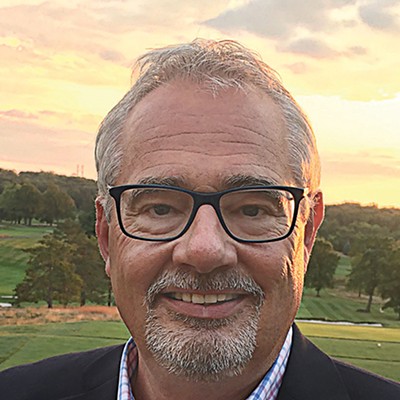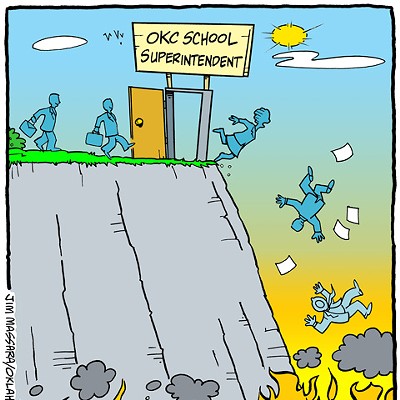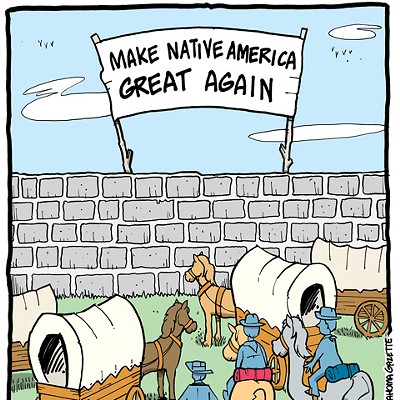America has a love-hate relationship with media. We complain about the lack of substantive programming, the bias of news reporting and the media fascination with Lindsay Lohan's revolving-door rehab adventures. We proclaim from the mountaintops our hatred for the insipid offerings of media, but at the same time, we plop down in front of the tube like Pavlov's dog as soon as we hear the "American Idol" theme music.
We get what we want, and let's face it, my friends, we want mindless entertainment " and corporate media is more than willing to fill our cups to overflowing with the same.
At a recent meeting of the Oklahoma Media Awareness Alliance (www.theomaa.org), I was fortunate to be one of four panelists discussing the purchase of KFOR-TV Channel 4 by Local TV LLC, as well as the condition of media overall.
The topics ranged from local programming (or lack thereof) to the high cost of running, maintaining, and operating radio and television stations. Although sparsely attended (there was, after all, a RedHawks baseball game and the Republican presidential debate with which to contend), the conversation was lively and underscored the seething frustration with media consolidation.
One particularly heated topic was that of the concept of free speech and censorship. Hot on the heels of the Don Imus disaster, media consumers are wondering just how far the power brokers will go to ensure a sanitized-for-your-protection media environment.
I shocked and amazed the audience when I made it clear that I do not support censorship except for maintaining community standards. Having shared time at hunting camp with the controversial musician-activist Ted Nugent, his statement about censorship rings true to me: Stupid people should be allowed to say stupid things as often as possible because we need to know who the stupid people are.
Being one of those stupid people, I couldn't agree more.
The work of an organization such as the Oklahoma Media Awareness Alliance is certainly needed as we find less and less substantive local programming and dialogue on the issues of importance impacting our daily lives. Radio and television station clusters are for-profit entities, and anyone who believes that the objective of these clusters is to provide meaningful programming that somehow improves our quality of life is woefully delusional.
It is all about cash-flow and profitability. It is much easier and less expensive to air syndicated programming or to flip the switch and allow the talking-points crew to share its prepackaged, preapproved ideologies than it is to have hard-hitting, intelligent conversation that sometimes ruffles a few feathers that need ruffling.
The Oklahoma Media Awareness Alliance will have a tough battle on its hands if it truly desires to create change. It is the quintessential David vs. Goliath struggle of grassroots activists taking on the well-funded, highly organized media moguls. But, then again, no one thought David could whip Goliath, either.
Black, the artist formerly known as "The 400-Pound Gorilla," is a political consultant and former talk show host living in Edmond.












